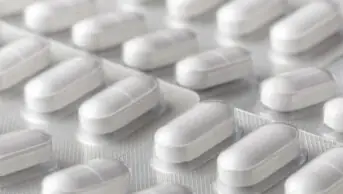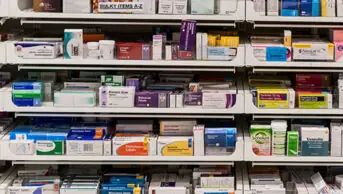
Shutterstock.com
The government allowed one drug manufacturer, whose licence had been suspended, to supply some critical medicines, as well as releasing supplies of another medicine from a central stockpile to try to deal with a huge increase in the cost of generic medicines, a National Audit Office (NAO) report has revealed.
The report found that unexpected increases in wholesalers’ margins had played a part in the price rises, with the Department of Health and Social Care (DHSC) unable to explain the reasons why this had happened.
Generic drug prices significantly increased in 2017 prompting an “unprecedented” rise in the number of requests from pharmacies to the DHSC for concessionary prices to be approved, according to the NAO report, which was published on 8 June 2018.
In May 2017, there were around 150 requests for concessions, and the number had rocketed to 3,000 by November 2017.
The rise in concessions in 2017 and 2018 cost clinical commissioning groups (CCGs) an extra £315m — a seven-fold increase between the net spend on price concessions compared with the previous 12 months.
Ten medicines accounted for around half the net spend. As an example, it revealed that the concessionary price agreed for 100g tablets of the antipsychotic quetiapine was £113.10, which was 70 times the original drug tariff price of £1.59.
In 2017–2018, the DHSC approved 709 concessions, compared with 282 in 2016–2017, the report revealed.
The NAO said that the DHSC identified three main causes for the crisis: the suspension of some manufacturers’ licences; a fall in the value of sterling; and the unexpected increases in wholesalers margins.
An additional factor may also have been the decision by the DHSC to originally grant concessionary prices which were “higher than necessary above the wholesalers’ selling prices”, it pointed out. The Department later revised the calculation and set the concessionary price against the manufacturer’s price rather than that set by the wholesaler.
The report also highlighted the action taken by the DHSC to address the crisis.
This included liaising with manufacturers to discover whether supplies were available and allowing one company — whose licence had been suspended — to continue to supply “critical” drugs as well as raiding supplies from a central stockpile.
The Department also sought additional information about the impact of the shortages from the Pharmaceutical Services Negotiating Committee (PSNC) and others, but admitted it had no idea how many patients failed to receive their medicines.
Commenting on the NAO report, PSNC chief executive Simon Dukes said the situation in the generics supply chain last year was “unprecedented”.
He said: “Community pharmacy teams were caught in the middle of the many factors at play, working extremely hard to obtain medicines as quickly as possible for the patients who needed them. PSNC welcomes the moves towards developing a more refined price-setting system; this must enable pharmacies to continue to purchase generic medicines effectively on behalf of the NHS for the benefit of patients.”
PSNC also said that the “forthcoming regulation on the disclosure of information on healthcare products will have an impact on managing price concessions, when a refined system can be established which makes use of the increased data capture”.
But the NAO said it was not convinced that changes to the law in July 2018, which will give the DHSC new powers to help control generic prices and will also introduces a mandatory obligation on manufacturers and wholesalers to share market information, will make any difference.
The report said: “Its new powers are untested and will require sufficient resources.”
Sandra Gidley, chair of the Royal Pharmaceutical Society English Pharmacy Board, said the NAO investigation “brings clarity to an issue which has hit community pharmacists hard over the past year”.
She said: “Many have found themselves out of pocket and experienced problems with their business operations. This has been a double whammy as it comes on top of the community pharmacy cuts and we are past the stage where community pharmacists can prop up the health service out of goodwill.
“We must have greater stability in generic prices — without it pharmacists struggle, CCGs are left in debt and patients suffer.”


